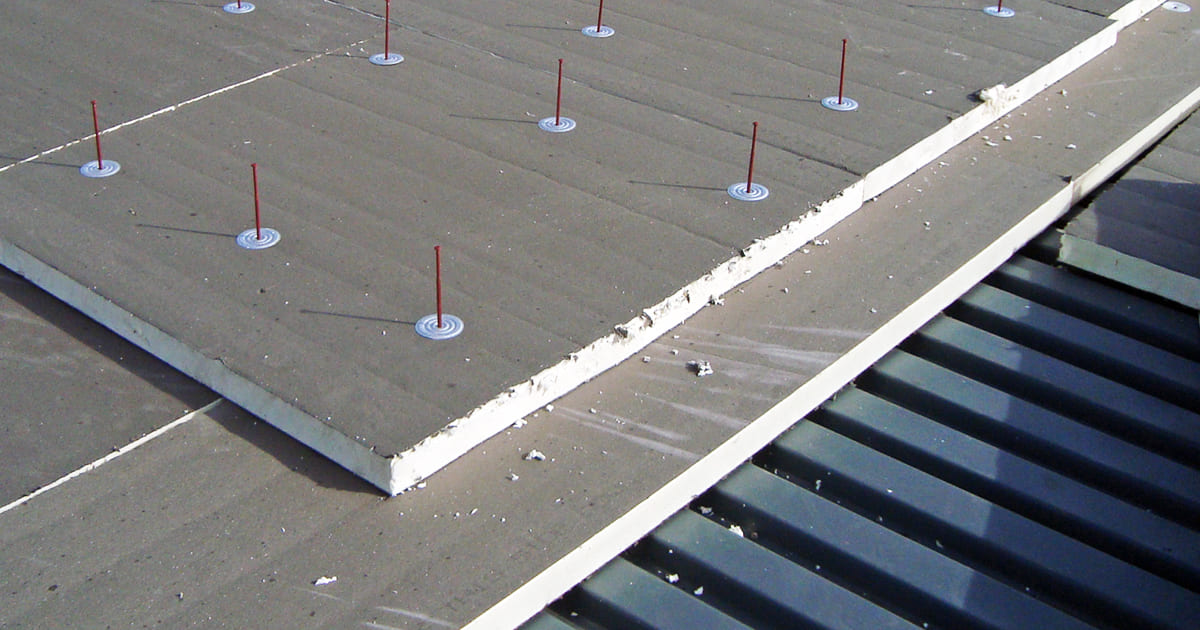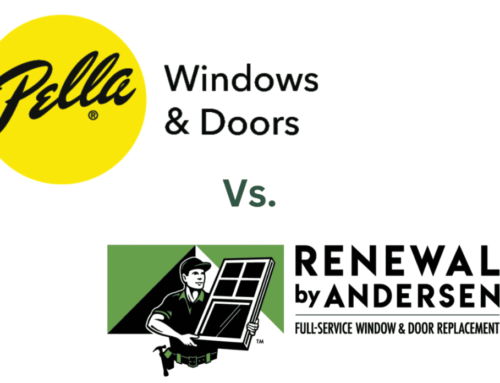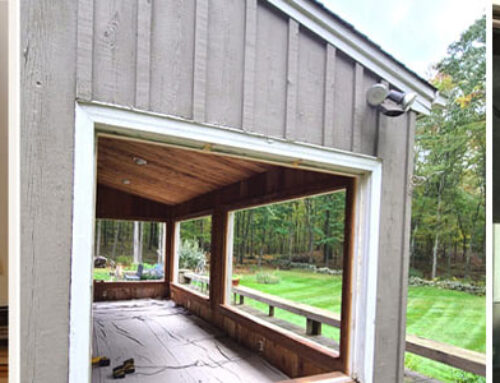Proper roofing insulation is crucial for maintaining a comfortable, energy-efficient, and protected home. In this article, we’ll explore the importance of roofing insulation, the various insulation options available, and why Superior Windowland in Connecticut stands out as the ideal choice for your insulation needs.
Understanding Roofing Insulation
Roofing insulation is a vital component of your home’s construction. It helps regulate indoor temperatures, reduces energy consumption, prevents moisture buildup, and protects against extreme weather conditions. The choice of insulation material depends on factors like climate, budget, and desired energy efficiency.
Types of Roofing Insulation – Benefits and Potential Drawbacks
1. Fiberglass Insulation
Benefits:
- Affordability: Fiberglass insulation is typically cost-effective, making it a budget-friendly choice.
- Thermal Performance: It offers good thermal resistance, helping to maintain indoor temperatures.
- Fire Resistance: Fiberglass is naturally fire-resistant, enhancing safety.
Drawbacks:
- Skin Irritation: Handling fiberglass without proper protection can cause skin irritation.
- Air Permeability: Over time, fiberglass insulation can settle and lose some of its insulating properties, reducing effectiveness.
2. Cellulose Insulation
Benefits:
- Eco-Friendly: Made from recycled paper or cardboard, cellulose is an environmentally friendly option.
- Excellent Thermal Performance: It provides excellent thermal resistance, keeping homes comfortable.
- Fire Retardant: Cellulose insulation is treated with fire-retardant chemicals for added safety.
Drawbacks:
- Sensitivity to Moisture: Cellulose can absorb moisture, potentially leading to mold growth if not properly installed and sealed.
- Settling: Like fiberglass, cellulose can settle over time, reducing its insulating effectiveness.
3. Spray Foam Insulation
Benefits:
- Air Sealing: Spray foam creates an airtight seal, minimizing air leakage and drafts.
- High R-Value: It offers high thermal resistance, making it very energy-efficient.
- Versatility: Spray foam can be applied to irregular spaces and is suitable for various roof designs.
Drawbacks:
- Cost: Spray foam insulation is one of the more expensive options.
- Installation Complexity: It requires professional installation due to its application process.
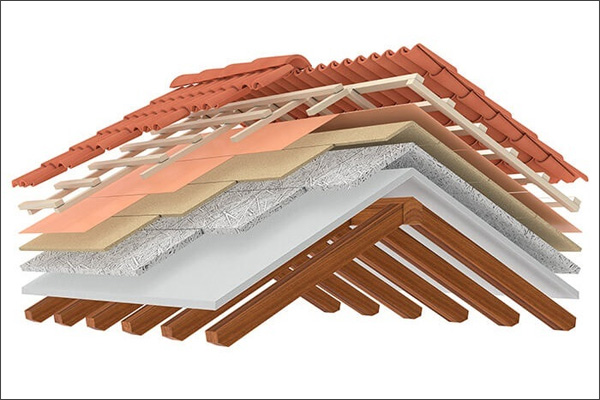
4. Reflective or Radiant Barrier Insulation
Benefits:
- Heat Reflection: Reflective insulation reflects heat away from the building, ideal for hot climates.
- Durability: It has a long lifespan and doesn’t degrade quickly.
Drawbacks:
- Limited Insulation: Reflective insulation primarily addresses heat gain; it may not be as effective in cold climates.
- Installation Complexity: Proper installation is crucial for effectiveness.
5. Rigid Board Insulation
Benefits:
- High Insulating Value: Rigid boards offer high thermal resistance.
- Moisture Resistance: They are not prone to moisture absorption.
- Durability: Rigid insulation is highly durable and retains its effectiveness over time.
Drawbacks:
- Cost: It can be more expensive upfront compared to other types of insulation.
- Installation Complexity: Professional installation is often recommended due to cutting and fitting requirements.
Each type of roofing insulation has its advantages and disadvantages, making the choice dependent on factors like climate, budget, and specific insulation needs. Consulting with a professional can help you determine the best option for your roofing project.
The Best Type of Roofing Insulation for the Connecticut Climate
Connecticut experiences a climate with cold winters and hot summers. The best type of roofing insulation for Connecticut’s climate should provide effective thermal performance in both extremes. Here are some insulation types suitable for Connecticut:
- Fiberglass Insulation
- Cellulose Insulation
- Spray Foam Insulation
- Rigid Board Insulation
- Reflective or Radiant Barrier Insulation
In Connecticut, a combination of insulation types might be the most effective approach. For example, using spray foam insulation in the attic to seal against drafts and insulate, combined with fiberglass or cellulose insulation in walls and roofs, can provide a comprehensive solution that addresses both cold winters and hot summers. It’s essential to consult with a professional insulation contractor who can assess your specific needs and recommend the most suitable insulation strategy for your home and climate in Connecticut.
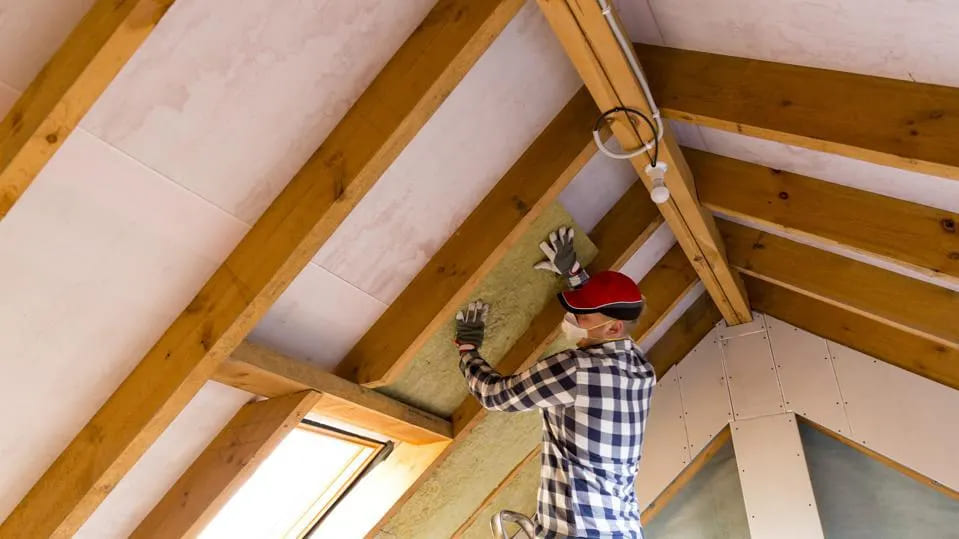
Why Choose Superior Windowland Services in Connecticut
- Expertise in Insulation
Superior Windowland specializes in roofing insulation. Our experienced team assesses your specific needs and recommends the most suitable insulation type for your climate and home.
- Energy Efficiency
Superior Windowland focuses on improving energy efficiency through insulation. Proper insulation can lead to significant energy savings by reducing heating and cooling costs.
- Custom Solutions
We offer tailored insulation solutions to address your unique requirements, whether you’re upgrading existing insulation or installing insulation in a new construction project.
- Licensed and Insured
Superior Windowland is a licensed and insured company, ensuring that your insulation project is conducted safely and professionally.
- Environmental Responsibility
We prioritize eco-friendly insulation materials and practices, contributing to sustainability efforts.
Contact Superior Windowland for a free estimate today and get the roof of your dreams in Connecticut. If you aren’t ready to speak with someone, don’t hesitate to fill out the online form on our website for a no obligation assessment.
Selecting the right roofing insulation is essential for your home’s comfort and energy efficiency. Superior Windowland in Connecticut excels in providing expert guidance and customized solutions for your insulation needs. Whether you’re looking to upgrade existing insulation or insulate a new construction project, their commitment to energy efficiency, eco-friendliness, and professionalism makes us the perfect choice for ensuring your home is well-insulated and protected.
